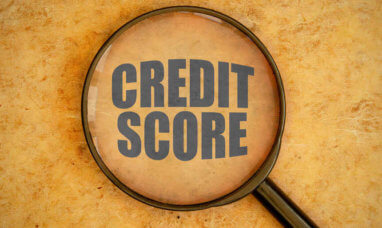As the name suggests, a credit builder loan, also known as a fresh start loan, is a loan designed to help people with little or no credit build their credit scores. Unlike other loans, taking a credit builder loan doesn’t require you to have good credit. The primary requirement for this loan is proof of income.
As you start your credit-building journey, your aim should be to achieve high credit scores, which allows you to get loans at better rates in the future. Let’s now look at how these loans work and how you can use them to build your credit.
How Does a Credit Builder Loan Work?
Compared to other loans, credit builder loans have a unique working concept.
First things first, you don’t need a good credit score to qualify for these loans; proof of income is enough. Once your loan gets approved, the funds won’t be released to you instantly. Instead, the lender deposits your funds into an interest-bearing savings account. This amount acts as a safety net for the lender who’s taking the risk of giving you money with little or no credit at all.
After this, you’ll be required to service the loan by making monthly payments to cater to the principal borrowed amount and the interest incurred over time. The interest rates for these loans vary from one lender to the other ranging between 5% to 16%. The interest you earn from the funds deposited in the interest-bearing savings account is often lower than the interest you pay on the loan.
Once you’re done servicing the loan, the lender releases the funds to you plus any interest earned over time.
In the course of your loan repayment journey, the lender reports your payment history to at least one of the three major credit bureaus (Equifax, Transunion, and Experian), which helps build your credit score if you make timely payments.
You can get credit builder loans from community banks, credit unions, online lenders, and other small financial institutions.
Typically, a credit builder loan helps you in two ways. It helps you to save while at the same time contributing to building your credit score.
How to Manage a Credit Builder Loan
Here are our tips on how you can manage your credit builder loan to build your credit score:
-
-
-
Choose a Good Lender
-
-
Different credit builder loan lenders charge different rates on their loans. So, to be on the safe side, take your time to study and compare different lenders. Ensure you pick a lender with good terms so you can pay the loan comfortably without stretching your budget.
Choosing the wrong lender will increase your chances of defaulting, making this loan lose its meaning. It’s advisable to go for a loan amount you can repay within a loan term of not more than two years.
You should also consider lenders who report repayment histories to all three credit bureaus so that any other lender looking for your credit history can get it easily.
-
-
-
Make Timely Payments
-
-
Another way to manage your credit builder loan is by making your payments on time. Choosing a good lender will help you make timely payments without going beyond your budget. Remember credit-builder loan lenders always report your payment history to at least one of the three credit bureaus so, defaulting on your payments can hurt your credit score.
-
-
-
Check Your Credit Score Regularly
-
-
Monitoring your credit score helps you keep track of the changes in your score. Here, you can use a personal finance app that updates your scores regularly, maybe weekly, to get a clear picture of where you stand.
-
-
-
Make Good Use of the Loan
-
-
At the end of the loan term, you’ll get your money as well as a good credit score if you maintain a healthy payment record. So, you should have a well-laid-out plan on how to use this money. Typically, you don’t want to see the credit score you’ve worked so hard to build falling. So, you can decide to add the money to your emergency fund to cater to future financial emergencies or invest it, whichever seems right for you.
Where to Find a Credit Builder Loan
Here’s a rundown of some of the places where you can get a credit builder loan:
-
-
-
Community Banks or Credit Unions
-
-
Community banks or credit unions are the best sources of credit builder loans. Just go online and search for a “credit builder loan” plus your state, and you’ll get a list of some lenders near you.
Most credit unions normally have some membership requirements that you must fulfill, such as living in a particular area, attending a particular church, or working for a specific employer, etc. Once you qualify for a credit builder loan from a credit union or community bank, you can enjoy lower rates than loans from other lenders.
-
-
-
Community Development Financial Institutions (CDFIs)
-
-
You can also apply for a credit builder loan from a nearby CDFI. Typically, CDFIs are established to help people in low-income communities access financial assistance. They are a good option if you can’t get a loan from a community bank or a credit union. There are about 1000 CDFIs in the US, so you can choose one that’s close to you.
-
-
-
Online Lenders
-
-
Another way you can get credit builder loans is through online lenders. A quick search for online lenders can bring up a list of lenders that you can contact. However, you have to confirm whether the lender is licensed in your state before you apply for the loan. Also, check the loan terms, payment installments, and APRs. Compare different online lenders and settle for one with the most favorable loan terms as per your needs.
-
-
-
Lending Circles
-
-
You can also form a lending circle with your friends or family where you can all agree to contribute a certain amount of cash to a common pool, say every month. Some financial institutions run lending circles programs where members of lending circles get loans interest-free, and payments are reported to credit bureaus. However, the availability of such programs is limited.
Other Credit-Building Options
Apart from credit builder loans, you can use the options below to build your credit score:
-
-
-
Installment Loans to Build Credit
-
-
If you have some cash in your bank account, you can apply for a certificate- or share-backed loan. If successful, the money you have in the bank will act as the collateral for the loan. It will be frozen until you repay the loan. Repaying the loan as agreed boosts your credit score. Some lenders may even allow you to borrow an installment loan against your car.
-
-
-
Become an Authorized User
-
-
You can also ask a relative or friend with a good credit score to add you to their card as an authorized user. By doing this, the good credit history of your friend’s card reflects on your credit report. The relative or friend doesn’t need to give you their card, just being associated with their good credit report helps build your scores.
-
-
-
Secured Credit Cards
-
-
The use of secured credit cards is another great way of building your credit. However, these cards will require that you make an upfront deposit. Most secure credit cards require minimum deposits of not less than $200. In most cases, your credit limit equals the deposit you make. For example, if you deposit $250, you’ll have a credit card limit of $250. When used appropriately, secured credit cards are a great way to build your credit.
[h2lineFAQs[/h2line]
Here are some of the frequently asked questions on credit builder loans:
Is FICO Score 697 Good or Bad?
Typically, a FICO score 697 lies between the range of 670-739, which is considered good. And while you can get a wide array of loans at this point, it’s still good to build your score to increase your chances of qualifying for higher loan limits at favorable terms.
Is 779 a Good FICO Score?
A FICO score of 779 is considered very good. In fact, it’s above the average credit score and qualifies you for better loan terms from the lenders.
How Do You Convert Vantage Score to FICO Score?
Vantagescore to fico score conversion follows a simple direct liners conversion. Here’s what you need to do to get a fico score from a vantage score:
FICO= (Vantage score-501) *1.12 + 300
What Can I Get With a 757 FICO Score?
757 fico score is considered a very good credit score which can give you access to premium rewards credit cards and mortgages or auto loans at favorable terms.
Bottom Line
Typically, credit builder loans are a good option if you’re new to credit or have low credit. However, if you’re already in debt, they may not help much. If you don’t have existing debt, a credit builder loan can help your credit score increase by up to 60 points or more.
Featured Image: Twenty20







